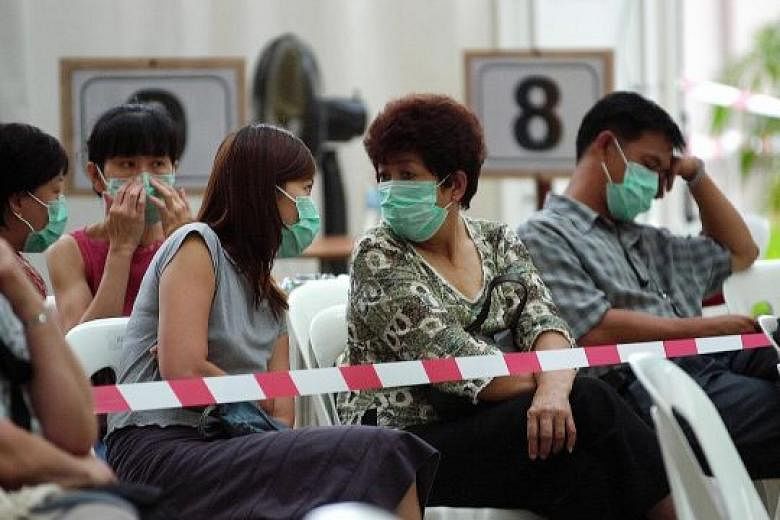How much would people in Singapore be willing to pay out of their own pockets for a one-time tax to save a life during an infectious disease outbreak?
Between 50 cents and $1, according to a study by the Saw Swee Hock School of Public Health. And that is only if everyone else pays the same amount.
However, most are supportive of fairly intrusive government intervention, such as isolation and quarantine of infected cases and those who might be infected due to close contact, temperature screening, and cancellation of mass events.
The results of the study were published in British Medical Journal Open last Friday, 15 years after the outbreak of severe acute respiratory syndrome (Sars) here, which infected 238 people, killed 33 and cost the country $1.5 billion.
The purpose of the study was to discover public acceptance of different outbreak response policies, said Associate Professor Alex Cook, the school's vice-dean (research) and the study's principal investigator.
The article said that while "individuals cannot directly pay for public health interventions that apply to society as a whole, willingness to pay serves as a useful gauge for strength of support for or against a policy measure".
During an outbreak, aside from deciding on its severity and measures that might be effective, the authorities also need to know "the public's willingness to accept the trade-offs associated with a given response to the outbreak", added the study's authors.
The study, from November 2012 till February 2013, of 500 people used a method called discrete choice experiment, where people are asked to choose a "bundle" - such as the amount of money they are willing to spend to stop the spread, and do mandatory quarantine, based on the number of people infected and the number who may die.
Prof Cook said this method is more likely to suss out what really matters to people.
If straightforward questions were asked, such as the number of deaths people are willing to accept, everyone would probably say zero. Similarly, people would prefer not to spend a single cent.
But by bundling the different factors, and asking the same question in about 10 different combinations, the authors were able to work out people's thresholds of acceptance.
In general, they found that people preferred greater government intervention when it comes to stopping a deadly infectious disease outbreak.
More than four in five favoured mandatory isolation of potentially infected contacts, and 19 out of 20 supported temperature screening, especially at Singapore's borders.
The study found there were two distinct groups - one that is mortality averse and the other that is expenditure averse.
The first group was "strongly motivated to reduce the number of deaths and willing to accept interventions that did so". The other, comprising slightly more than a third of those surveyed, were "not in favour of any measures that might increase their taxes" even if the amount were the same as what Singapore spends each year to control dengue here. This is estimated at more than $100 million.
The study found that people with post-secondary education were more willing to spend to save lives.
Singaporeans appear quite willing to put up with fairly draconian interventions, said Prof Cook, such as quarantine and closure of schools, to prevent the spread of a dangerous disease.
But they are far less willing to accept such moves if it were only to reduce the number of people getting sick but who do not die.
During an outbreak and at the urging of the Government, most say they would go less often to shopping malls and for festive gatherings. They are also willing for schools to be closed.
But more than half would continue frequenting hawker centres and religious gatherings in spite of an ongoing outbreak.


